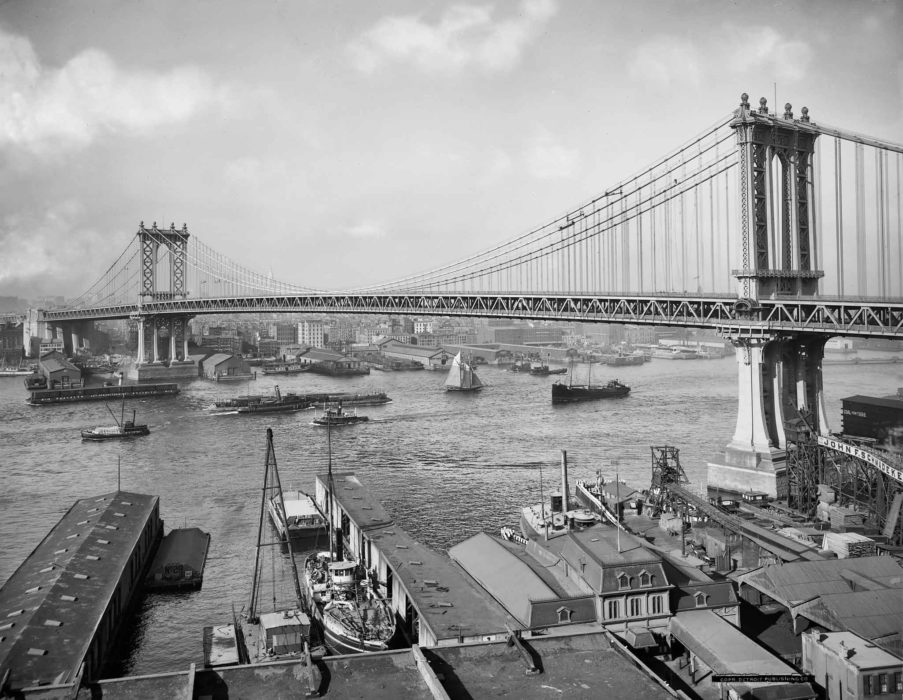“EVERY RELIGION AND EVERY religious aspiration may be freely voiced and expressed here,” ‘Abdu’l-Bahá told the congregation in Brooklyn.
Three days ago, a New York newspaper had criticized Reverend John H. Melish of the Episcopal Church in Brooklyn, who had defended ‘Abdu’l-Bahá’s right to speak from the Episcopal pulpit. Pastors from other Brooklyn churches had made it clear that they didn’t agree with the Episcopal church hierarchy, including the Reverend S. Parkes Cadman who had invited ‘Abdu’l-Bahá to speak at his Central Congregational Church this afternoon.
“Consider what a vast difference exists between modern democracy and the old forms of despotism,” ‘Abdu’l-Bahá told Cadman’s congregation. “Under an autocratic government the opinions of men are not free, and development is stifled, whereas in democracy, because thought and speech are not restricted, the greatest progress is witnessed.”
“It is likewise true in the world of religion,” ‘Abdu’l-Bahá noted. Then he thanked Dr. Cadman for the invitation to speak, calling the Reverend “indeed a servant of the oneness of humanity.”
‘Abdu’l-Bahá commented on the path to unity within the broader Christian church: “If Christians of all denominations and divisions should investigate reality, the foundations of Christ will unite them.”
Then he moved beyond the Christian religion: “Likewise, in the wider field if all the existing religious systems will turn away from ancestral imitations and investigate reality, seeking the real meanings of the Holy Books, they will unite and agree upon the same foundation, reality itself.”
‘Abdu’l-Bahá wasn’t referring to the religious systems pieced together by man. He had been clear on many occasions that man-made religious hierarchies could never be reconciled. He was speaking about the source of those religions.

“The holy Manifestations Who have been the Sources or Founders of the various religious systems were united and agreed in purpose and teaching,” ‘Abdu’l-Bahá explained. “Abraham, Moses, Zoroaster, Buddha, Jesus, Muḥammad, the Báb and Bahá’u’lláh are one in spirit and reality.”
Then ‘Abdu’l-Bahá turned it up a notch: he started to speak about Islám. Cadman had said, after all, that all religious opinions were welcome here. ‘Abdu’l-Bahá wanted to convince his audience that Muḥammad had revered Christ. “In the Qur’án there is eulogy and commendation of Christ such as you do not find in the Gospel,” he said. “In this sacred Book there are explicit texts . . . stating that Christ was the Word of God, that He was the Spirit of God, that Jesus Christ came into this world through the quickening breaths of the Holy Spirit.”
“For more than a thousand years,” ‘Abdu’l-Bahá told the congregation, “there has been enmity and strife between Muslims and Christians.” He asked: “How much blood has flowed in their wars; how many nations have been destroyed; how many children have been made fatherless?”
The point was clear: “If the Holy Books were rightly understood, none of this discord and distress would have existed, but love and fellowship would have prevailed instead.” The same, he remarked, applies to all religions.
Then ‘Abdu’l-Bahá spoke about his father.
Bahá’u’lláh, he noted, had spoken out in the East when “the various peoples and nations were in a state of antagonism and strife.” He described how his father was imprisoned by the Persian and Ottoman governments, his followers tortured and murdered, and how, in spite of being a prisoner, Bahá’u’lláh “wrote to the kings and rulers of the world in words of wonderful eloquence, arraigning them severely and summoning them to the divine standard of unity and justice.”
Bahá’u’lláh “removed all the imitations and prejudices which had caused separation and misunderstanding,” ‘Abdu’l-Bahá said, “and laid the foundation of the one religion of God.”
“Muslims, Christians, Jews, Zoroastrians, Buddhists all were united in actual fellowship and love. The souls who followed Bahá’u’lláh from every nation have become as one family . . . willing to sacrifice life for each other. The Muslim will give his life for the Christian, the Christian for the Jew and all of them for the Zoroastrian.”
“They have attained to the condition of rebirth in the Spirit of God.”






